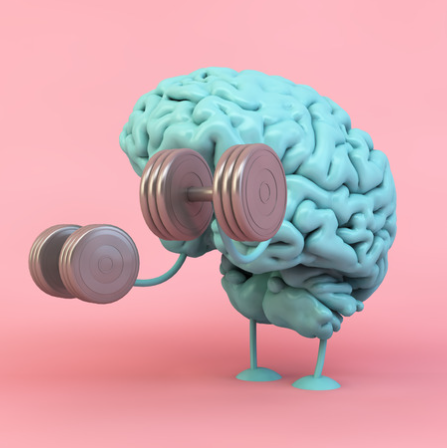
Imagine that today, right now, you decide to do an Ironman Race. You have not trained for it, but somehow you pull through and complete it. You swim 2.4 miles, bike 112 miles, and finish it all off with a 26.2 mile marathon distance run. Now, imagine how you would feel after completing that race. Your body would be physically exhausted and depleted of all of its energy. It is unlikely that you would be able to wake up the next morning and get back to all of your normal daily activities. In fact, it would likely take days of proper nutrition, hydration, stretching and self-care to get yourself back to feeling 100% again. Right?!
This same scenario is similar to what happens to your brain with a concussion. A concussion causes millions of neurons (nerve cells) in your brain to fire all at one time. This is similar to all of those cells completing an Ironman. The neurons in your brain become depleted of all of their energy. In fact, they lose so much of their energy that it takes an average of 22-30 days for it all to be restored to normal levels.
If you ignore the concussion and get up the next day, trying to go about your normal daily activities (going to work or school, working out, cleaning the house, cooking dinner, checking your e-mail, binging your favorite show, etc.), your brain would have to use energy which is not as readily available as it was before your concussion. In fact, the more you used your brain without considering the injury it sustained, the longer it would take for it to recover. Not only that, but the symptoms that often accompany a concussion would take longer to resolve.
This is why proper concussion recovery is so important. Returning to activity must occur in a graded, supervised program to ensure that your brain is able to return to its normal level of function. During the first 24-72 hours following the initial injury, it is essential to give your brain a period of “cognitive rest.” This means doing low-brainwork activity that does not increase any of your concussion symptoms like listening to music or relaxing in a room. After that initial rest period, slowly returning to daily activities is important, but they should not increase your symptoms too much. For instance, you might be able to try going to work for a half day and limit the amount of screen time you have for the day. It is also important to begin light cardiovascular exercise, such as walking or riding a stationary bike. Again, your symptoms will dictate how much activity you can perform and how fast you can progress.
Research shows that people who begin working with a concussion specialist within the first few days of injury recover faster and have less lingering symptoms than those who do not seek help, or delay getting help until weeks after the injury. You would take the time to let your body recover after the Ironman. It’s just as important to give your brain the same opportunity to heal.
Let us know how we can help.